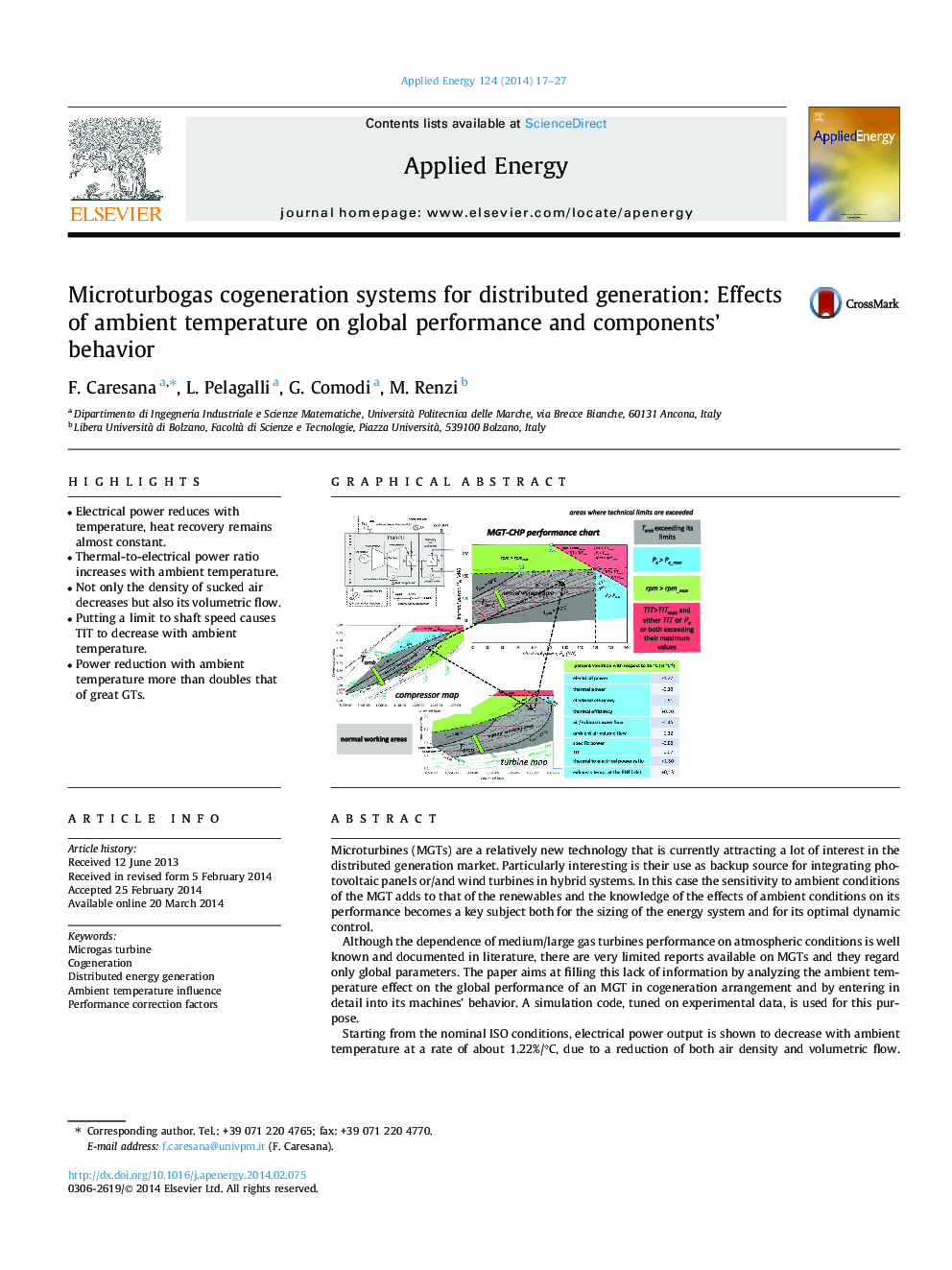| کد مقاله | کد نشریه | سال انتشار | مقاله انگلیسی | نسخه تمام متن |
|---|---|---|---|---|
| 242810 | 501903 | 2014 | 11 صفحه PDF | دانلود رایگان |

• Electrical power reduces with temperature, heat recovery remains almost constant.
• Thermal-to-electrical power ratio increases with ambient temperature.
• Not only the density of sucked air decreases but also its volumetric flow.
• Putting a limit to shaft speed causes TIT to decrease with ambient temperature.
• Power reduction with ambient temperature more than doubles that of great GTs.
Microturbines (MGTs) are a relatively new technology that is currently attracting a lot of interest in the distributed generation market. Particularly interesting is their use as backup source for integrating photovoltaic panels or/and wind turbines in hybrid systems. In this case the sensitivity to ambient conditions of the MGT adds to that of the renewables and the knowledge of the effects of ambient conditions on its performance becomes a key subject both for the sizing of the energy system and for its optimal dynamic control.Although the dependence of medium/large gas turbines performance on atmospheric conditions is well known and documented in literature, there are very limited reports available on MGTs and they regard only global parameters. The paper aims at filling this lack of information by analyzing the ambient temperature effect on the global performance of an MGT in cogeneration arrangement and by entering in detail into its machines’ behavior. A simulation code, tuned on experimental data, is used for this purpose.Starting from the nominal ISO conditions, electrical power output is shown to decrease with ambient temperature at a rate of about 1.22%/°C, due to a reduction of both air density and volumetric flow. Meanwhile, thermal to electrical power ratio increases at a rate of about 1.30%/°C. As temperature increases compressor delivers less air at a lower pressure, and the turbine expansion ratio and mass flow reduce accordingly. With the in-use control system the turbine inlet temperature reduces at a rate of 0.07%/°C with respect to its ISO condition value.
Figure optionsDownload as PowerPoint slide
Journal: Applied Energy - Volume 124, 1 July 2014, Pages 17–27